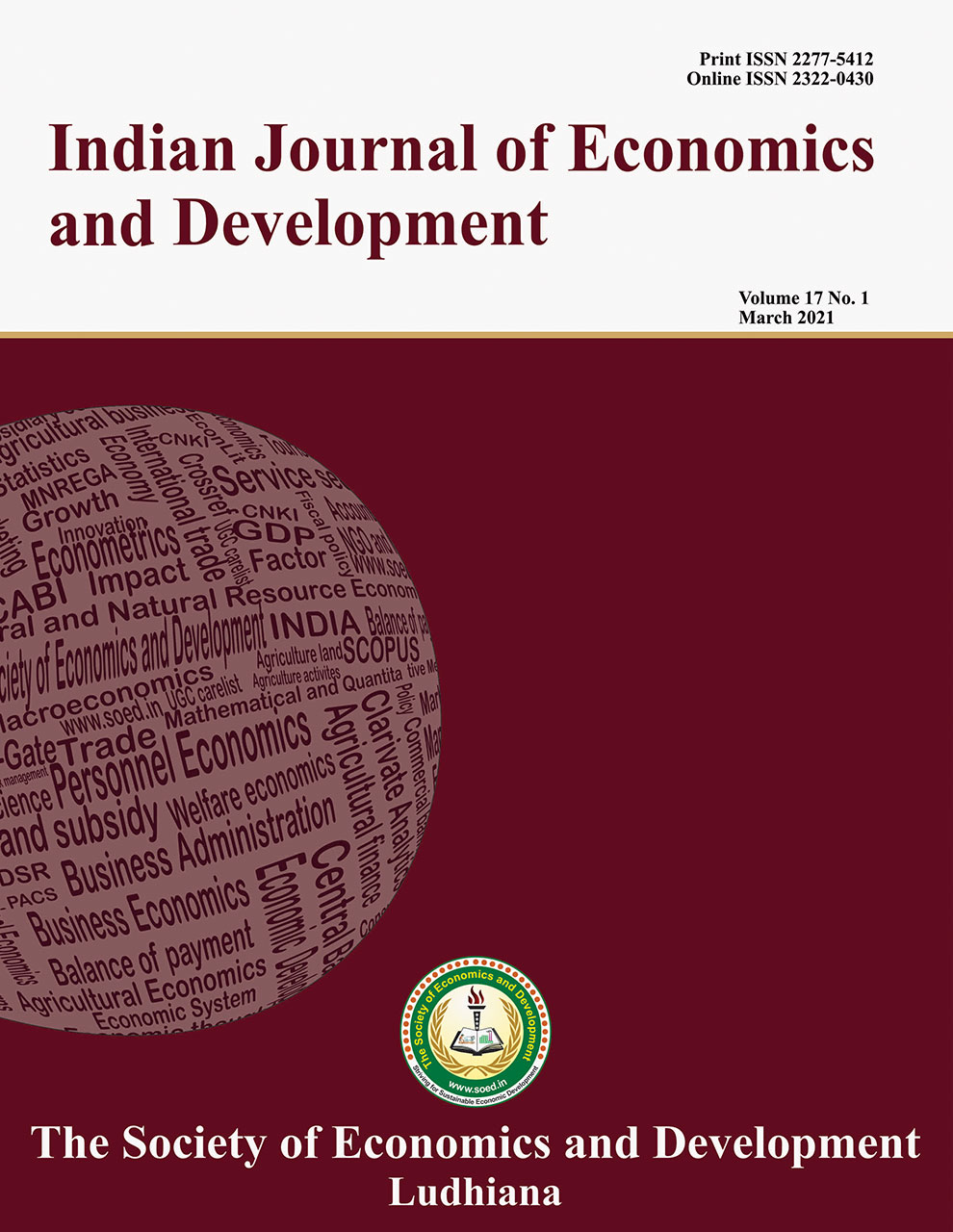Level of Inequality and Welfare Change Across Vulnerable Groups in Emerging Regional States of Ethiopia: The Atkinson-Gini Social Welfare Analysis

Price: ₹ 500
Author: Pal Both and Anupama Uppal
Author Address: Research Scholar, and Professor, Department of Economics, Punjabi University, Patiala-147002 (Punjab)
Keywords: Inequality, risk aversion, social welfare, vulnerable social groups
JEL Codes: D11, D63, D81
Abstract
Economic growth in Ethiopia, particularly in developing regions, would follow fair income distributions and lower inequality that cannot affect social welfare. In line with the adopted pro-poor fiscal policies since 1995-96, the study looked at how price, tax reforms, and income growth affected social welfare. The study used survey data from the Ethiopian Central Statistical Agency by applying the Atkinson-Gini Index to estimate the level of inequality and social welfare of vulnerable groups. From the analysis, Ethiopia's economic growth was inflationary growth dominate. Price rises increased inequality and reduced consumption than tax reform. The findings invalidated the aim of income growth to mitigate the inflationary impact on welfare increase. Finally, the study found that providing social welfare support to these groups did not increase their ability to withstand the risks of declining welfare. Thus, the study recommended that income redistribution measures aided by pro-poor policies be implemented with caution.
Description
Indian Journal of Economics and Development
Volume 18 No. 2, 2022, 257-269
DOI: https://doi.org/10.35716/IJED/21181
NAAS Score: 5.15 (2022)
Indexed in Clarivate Analytics (ESCI) of WoS
Indexed in Scopus (SJR: 0.18)
UGC Approved (UGC-Care List Group II)



